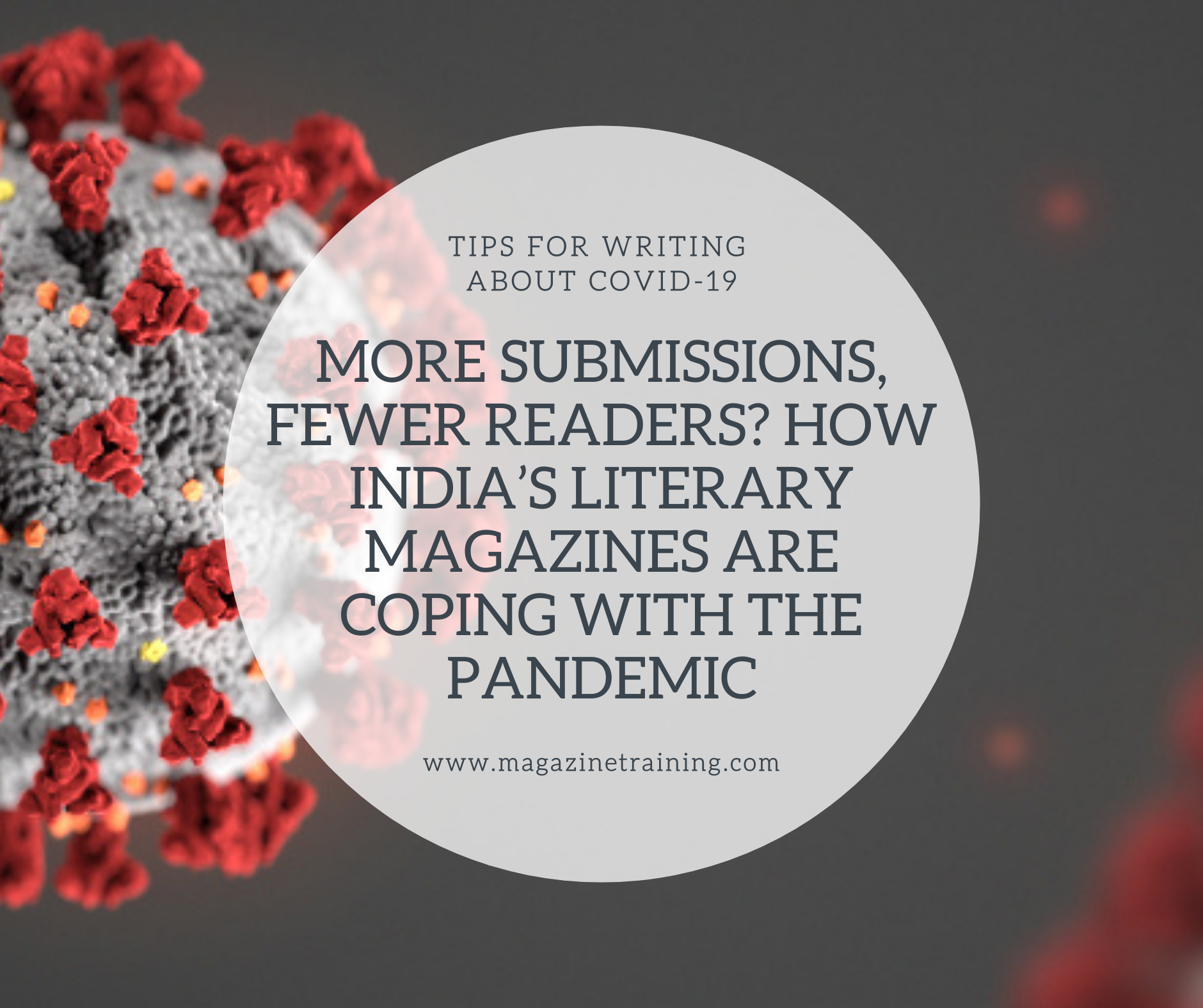
First person accounts from the editors of lit mags in English, Hindi and Tamil.
Literary magazines have been quiet, stable homes for creative writing, sheltering fiction, poetry, essays from the bluster of the mainstream. So what happens when the world falls apart and everything becomes noise? How do the gentle stables of literature cope? As we wait anxiously for the first post-pandemic literary masterpiece, there is curiosity about the kind of submissions literary journals have been receiving; whether isolation, grief, fear, longing are spilling on to the page, and if they are, what form they are taking. If some reports are to be believed, more people are writing now than ever – there’s even a “poetry virus” going around. Just how contagious is it?
When all manner of publishing platforms are bumbling their way through “the new normal”, literary journals must also find ways to survive. And many have – despite hitting pause on print runs, despite disrupted distribution channels, despite running low on time and resources, all the while competing with escapist, clickbait-y material popping up at every turn. Advertisement
Floating in a pool of doom and gloom as we all are, one could argue, is precisely why we need these little literary islands – to travel the length of a memorable short story, to savour the contours of a poem and, as Out of Print founder Indira Chandrasekhar puts it, to “also find escape from fear of a looming cloud of viral particles or the imagery of fellow citizens dropping dead as they embark on a journey home, the horrors of Indian matchmakers or low brow Scandinavian crime.”
Editors of literary journals from across the country talked to Scroll.in about the highs and lows of working through the uncertainty of the times, the new sense of intensity in the creative writing coming their way, and what the future holds for them.
Sampurna Chattarji, Poetry Editor, The Indian Quarterly
The first and immediate impact of the pandemic was on our April-June 2020 issue, which was about to go to press when Mumbai went into lockdown. For a magazine that is absolutely sumptuous in print that was a big blow. And while it is available on Magzter, I – as well as some of the poets featured – certainly missed the beautiful tactility that every issue of IQ brings to readers and contributors alike. (I’m sure more than one of us felt at that point that April, is indeed, the cruellest month!)
Another thing I miss is working with the team – Rahul Das, the Art Director, and Preksha Sharma, the Assistant Editor, who are both Mumbai-based; Nayantara Patel, our Managing Editor, and Madhu Jain, our Editor, who would both fly down from Delhi. Conference calls and emails, while efficient enough, simply cannot replace the joy of working together in the same space, with pure concentration and camaraderie before sending each issue to press.
As for submissions, there is an explosion of poetry about isolation, vulnerability and – inevitably – the virus. Poems about the longing for human contact, as expressed through the body. Poems about “the new untouchables” (the title of a poem Manohar Shetty sent me along with two others, in response to the Corona crisis). The issues, however, that poets grapple with pre-date the pandemic, and will outlive the crisis, as will the best poems that emerge through this phase.
By Neha Bhatt, Scroll
Related posts
Category: Uncategorized
Malnutrition is a health crisis affecting millions around the world — and one becoming more urgent as the pandemic continues. Its impact is not just represented in […]
Magazine Training International’s mission is to encourage, strengthen, and provide training and resources to Christian magazine publishers as they seek to build the church and reach their societies for Christ.

